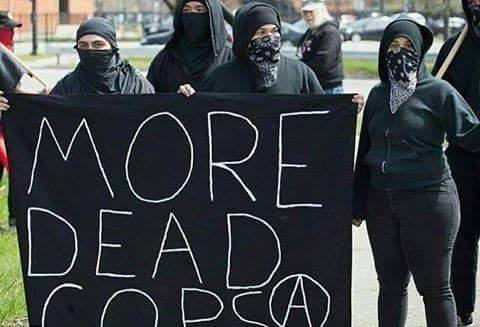 |
| James Lawler Duggan/Reuters |
I’d urge everyone to read my colleague Jim Geraghty’s post on the thuggery this weekend in Portland. It was appalling to watch masked Antifa thugs attack Andy Ngo, and it was also appalling that the police weren’t immediately present to arrest his attackers. Antifa’s propensity to violence is well known, and while I’d love to hear a sympathetic explanation for the absence of police, the lack of response looks a lot like a dereliction of duty.
There is, however, a simple and well-known legal reform that will go a long way towards deterring Antifa violence — even when police aren’t close by, but iPhones are. It’s called an anti-masking law. They’ve long existed in the South as a check on Klan violence, and they not only make it easier for police to immediately identify and arrest criminals, they also allow witnesses to preserve the pictures and videos of violent attackers for later criminal or civil action.
When I tweeted over the weekend in support of an anti-masking ordinance in Oregon, a number of correspondents asked me if the laws were consistent with First Amendment protections for anonymous speech. The answer is generally (though not always) yes, and there’s relatively recent on-point case law in the Second Circuit saying so. While court of appeals cases aren’t nationally dispositive, the panel in Church of the American Knights of the Ku Klux Klan v. Kerik included Sonia Sotomayor, and its reasoning is instructive.
New York’s anti-masking law predates the Klan, tracing its history back to an 1845 effort to combat violent Hudson Valley farmers. The statute essentially prevents gatherings of masked people unless they’re gathering for a “masquerade party or like entertainment.” The panel considered a number of constitutional challenges, including claims that wearing masks was a form of expressive conduct and claims that wearing masks protected a right to anonymous speech. Regarding the first claim, the panel noted that the in the Klan context, the mask constituted a “redundant” form of expression:Read the rest from David French HERE,
If you like what you see, please "Like" us on Facebook either here or here. Please follow us on Twitter here.


No comments:
Post a Comment